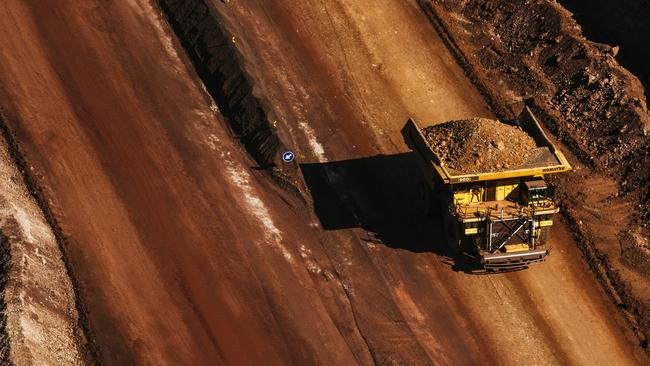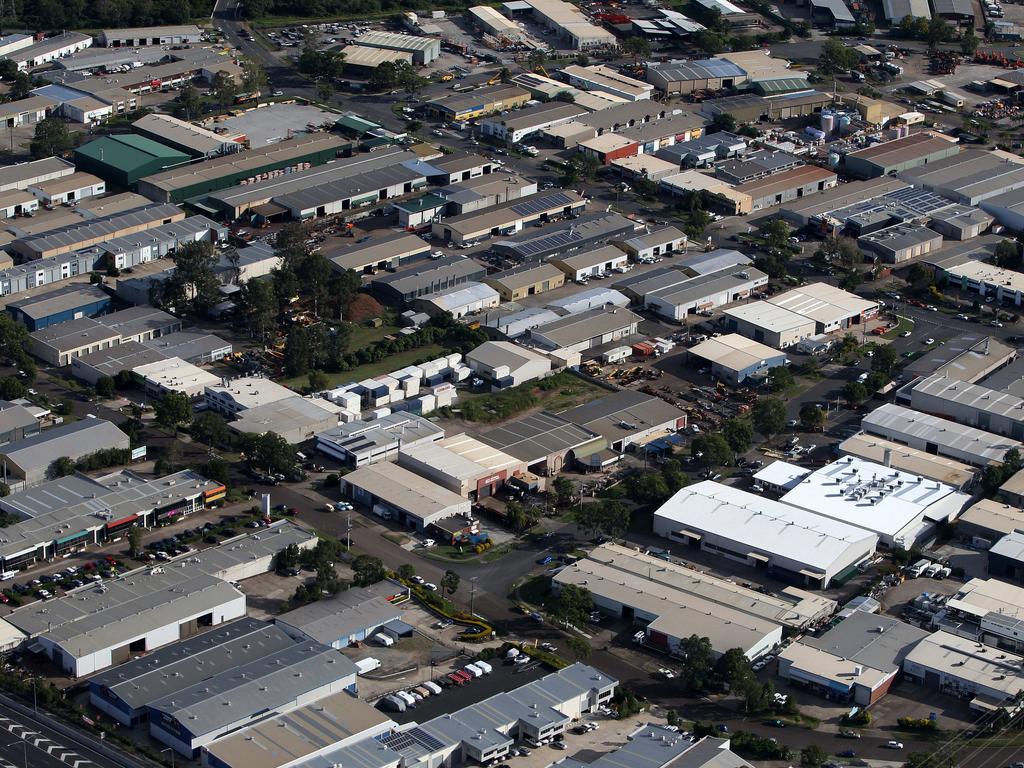Surging taxes bankroll federal budget surplus
Surging commodity prices and higher corporate taxes helped bring the budget back to surplus, but business gets little.

Surging commodity prices and the resulting higher corporate taxes helped bring the budget back to surplus but big business will get little in return beyond better-funded regulators and tax collectors.
Two years after the government abandoned plans to slash the corporate tax rate by 5 per cent to 30 per cent, the strength of receipts from business is more than offsetting declines in activity across the economy.
Total tax receipts have been revised down by $15 billion over four years because of a weaker outlook for household consumption, dwelling investment and average wages.
“In the near term, however, this impact will be more than offset by an increase in company tax collections in 2018-19 and 2019-20, reflecting the recent observed strength in commodity prices,” the budget papers say.
Credit rating agency Moody’s welcomed the news, saying strong revenue growth, reflecting higher-than-expected commodity prices and strong employment growth had “significantly” improved the federal budget position over the past year.
“At the same time, the government has provided support for the economy through its infrastructure spending, while overall spending growth has remained contained,” Moody’s Investors Service vice president Martin Petch said.
“Overall, Australia’s high levels of debt affordability and moderate debt burden will remain in line with its Aaa rated peers.”
Business tax is forecast to be 10 per cent higher at $93bn by the end of this budget year and hit $98.9bn by the end of rookie Treasurer Josh Frydenberg’s first budget.
Iron ore has climbed from around $US55 a tonne at the start of this financial year to more than $US80 today, helped by stronger than expected demand from the world’s biggest customer, China, supply discipline from the major producers and significant disruption to production from Brazil.
The price of the steelmaking ingredient has surged higher since January after Brazilian authorities suspended operations at several mines in response to the collapse, knocking as much as 90 million tonnes out of the market.
The price surge caught the government by surprise and helped add $6bn to expected corporate tax receipts between last year’s budget and 2019-20.
The government had forecast the price at $US55 a tonne in the previous year’s budget, and this year’s document has prices returning to that level by the end of next March.
Treasury said its market soundings indicated prices were likely to stay high for the next four quarters, but conceded some players had highlighted the possibility that prices could remain high for even longer.
Metallurgical coal prices have been revised up from $US120 a tonne to $US150 a tonne as a result of the same demands driving the iron ore price.
Mr Frydenberg conceded there was little for big business beyond a stronger economy.
The Budget papers forecast economic growth kicking up from 2.25 per cent to 2.75 per cent in 2019-20 and to 3 per cent by 2021-22.
“The economy is expected to continue to benefit from solid global growth, especially among Australia’s major trading partners,” the budget papers said.
While there was some loss of momentum in the international economy in the second half of 2018, global growth was supported by low interest rates, solid labour markets and the unwinding of some temporary dampeners such as natural disasters in Japan.
In the international economy, trade tensions remained. The Chinese economy — a key driver of the local economy — and Europe and Japan had lost momentum.
The government is banking on a pick-up in household consumption thanks to continuing low interest rates, a strong job market that should feed through to wages, and the impact of a tax cut for low-income earners that kicks in at the turn of the financial year.
But Mr Frydenberg said there were “genuine and clear risks” emerging both at home and abroad.
Residential housing markets were cooling, credit growth had eased and “we are yet to see the full impact of flood and drought on the economy”.
GST collections have been revised down by $1.8bn since the mid-year economic and financial outlook in December, but are still growing.
The budget promises an increase from $75bn to $100bn in infrastructure spending over the medium term — beyond the four year budget period — in a bid to balance the impact of resources.
New measures announced in the budget include an extra $1bn for the Australian Taxation Office to improve collections and another $606 million over four years for the Australian Securities & Investments Commission as it ramps up enforcement.
Mr Frydenberg noted in his budget speech that efforts to crack down on multinational tax avoidance had raised $12bn. The extra funding is expected to raise another $3.6bn.
Treasury said labour market conditions in Australia continued to be strong, with employment growth above its long-run average for almost two years, outpacing population growth.
Unemployment is at its lowest level in seven years and Treasury said “solid” growth in output was expected to continue to support employment growth of 1.75 per cent.
That is finally expected to feed through to wage growth as that continued employment growth soaks up spare capacity. Wage growth is expected to pick up to 2.75 per cent by June 2020 and 3.14 per cent by 2021.
Treasury said all states and territories and most industries recorded higher wage growth than a year earlier.





To join the conversation, please log in. Don't have an account? Register
Join the conversation, you are commenting as Logout